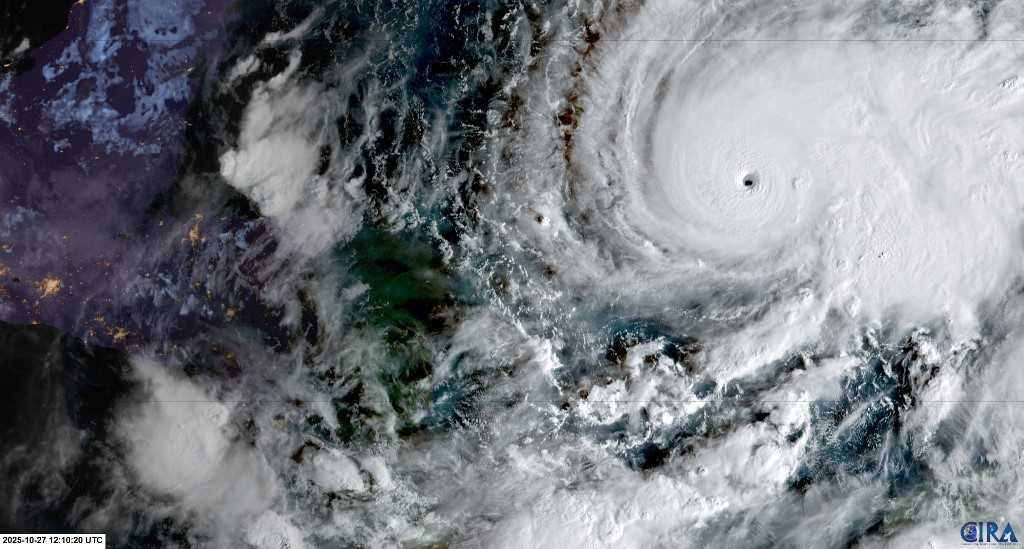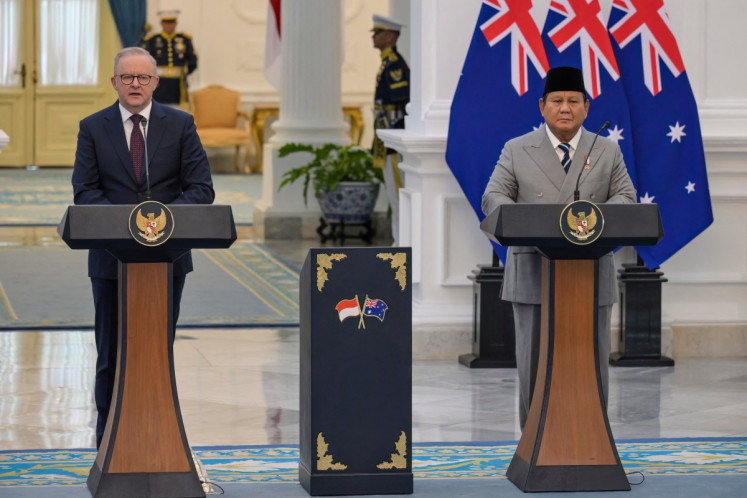Popular Reads
Top Results
Can't find what you're looking for?
View all search resultsPopular Reads
Top Results
Can't find what you're looking for?
View all search resultsWMO warns Hurricane Melissa to be Jamaica's worst storm this century
"It’s a catastrophic situation expected in Jamaica," WMO tropical cyclone specialist Anne-Claire Fontan said at a Geneva press briefing. "For Jamaica, it will be the storm of the century for sure."
Change text size
Gift Premium Articles
to Anyone
T
he World Meteorological Organization (WMO) warned on Tuesday of catastrophic conditions in Jamaica as Hurricane Melissa makes landfall, bringing winds gusts exceeding 300 kilometres per hour, flash floods, and landslides, marking the worst storm to hit the island this century.
"It’s a catastrophic situation expected in Jamaica," WMO tropical cyclone specialist Anne-Claire Fontan said at a Geneva press briefing. "For Jamaica, it will be the storm of the century for sure."
She said that storm surges of up to fourmeters were expected during the day and that rainfall was set to exceed 70 centimetres or about twice the amount expected normal the entire rainy season. "It means there will be catastrophic flash flooding and landslides," she said.
The International Federation of the Red Cross (IFRC) is bracing for up to 1.5 million people in Jamaica to be directly affected by the storm.
"Today will be very difficult for tens of thousands, if not millions of people in Jamaica," IFRC's Necephor Mghendi said via video link from Port of Spain.
"Roofs will be tested, floodwaters will rise, isolation will become a harsh reality for many."
Over 800 shelters have been set up for evacuees from the worst-hit areas, he added.
"The main priority was to get people out of harm’s way to reduce the number of casualties."
Meanwhile, the International Federation of Red Cross and Red Crescent Societies said Tuesday that hurricane Melissa could affect 1.5 million people in Jamaica, warning of a "massive impact".
The Category 5 storm -- which could be the island's most violent on record -- is on a painstakingly slow path through the Caribbean and expected to make landfall on the Jamaican coast on Tuesday.
"1.5 million people may be impacted," said Necephor Mghendi, the IFRC's head of delegation for the English- and Dutch-speaking Caribbean.
Speaking from Trinidad and Tobago, he told reporters in Geneva that that number could be "an underestimate".
"The humanitarian threat is severe and it's immediate," he said.
Mghendi said the Jamaican Red Cross had mobilised at its highest level but "coastal communities remain financially strained, informal settlements are highly exposed to destructive winds and already saturated soils.
"This is because it's been the rainy season and there is an increased likelihood of landslides and life-threatening floods," he said.










